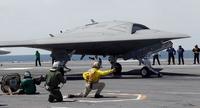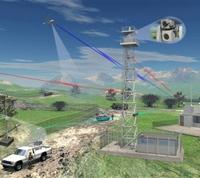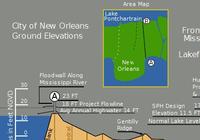-
Pentagon not likely to attack Syria’s chemical weapons depots
Administration officials say that the coming U.S. military strike against Syria – and it may be launched as early as tomorrow, Thursday – will aim not to change the regime, but to punish the Assad regime for using chemical weapons, and “deter and degrade” the ability of the regime to launch chemical weapons in the future. The attack will not be focused on chemical weapons storage sites, as American officials fear that such an attack may release clouds of toxic clouds into the air, possibly causing humanitarian and environmental disaster. Israeli intelligence analysts disagree, pointing out that the components of the chemical weapons are stored separately and assembled when an order is given – meaning that a strike on a chemical weapon storage facility will not trigger a chemical reaction. Whether or not Israel has been able to persuade the United States on this issue remains to be seen, but one thing is clear: if Assad decides to retaliate against Israel in the wake of an American strike on Syria, Israel will not hesitate to attack these storage facilities.
-
-
Cruise missile-only strikes have mixed record of success
If the United States limits its operation in Syria to cruise missile strikes, the operation will resemble similar attacks in the past – for example, cruise missile attacks in Afghanistan, Sudan, and Iraq in 1998. Cruise missile-only operations have had at best a mixed record of success. Experts note that Tomahawk missile strikes are politically and psychologically significant, but typically have a limited tactical effect.
-
-
What you haven’t heard about immigration reform and border security

The Senate and House must find a way to resolve our current immigration dilemmas. We owe a fairer, more just system of laws to all our immigrants, both illegal and legal. And, yes, we must find ways to address issues of national security as well. It’s not going to be easy to shape such legislation, but we should demand no less from both Democrats and the Republicans.
-
-
3D Earth model accurately pinpoints source of earthquakes, explosions
During the cold war, U.S. and international monitoring agencies could spot nuclear tests and focused on measuring their sizes. Today, they are looking around the globe to pinpoint much smaller explosives tests. Researchers are working on developing a 3-D model of the Earth’s mantle and crust called SALSA3D. The purpose of this model is to assist the U.S. Air Force and the international Comprehensive Nuclear-Test-Ban Treaty Organization (CTBTO) in Vienna, Austria, more accurately locate all types of explosions.
-
-
New technology improves IED detection

Improvised explosive devices, or IEDs, are homemade bombs that can both injure and kill civilians and service members. One solution to the problem of IEDs is to find them before they explode by detecting the chemicals used in the explosives. Scientists at the U.S. Naval Research Laboratory (NRL) have developed a technology, using silicon to fabricate a sensor that may revolutionize the way trace chemical detection is conducted
-
-
U.S., allies prepare military strikes against Syria

Secretary of State John Kerry yesterday said that the use by the Assad regime of chemical weapons in attacks on civilians last Wednesday was undeniable. He said the Obama administration would hold the Syrian government accountable for this “cowardly crime” and “moral obscenity.” U.S. political and military leaders have been holding around-the-clock discussions with allies about a coordinated military attack on Syrian regime facilities. The United States, the United Kingdom, France, and Turkey said there was no need to seek a UN Security Council approval of military action against Syria, and that none will be sought. Administration lawyers have been crafting legal justifications for an intervention without UN approval that could be based on findings that Assad used chemical weapons and created a major humanitarian crisis. The U.S. Navy has moved more ships to the eastern Mediterranean, and activity has been stepped up in Britain’s air base in Cyprus.
-
-
Israel offers proof of Assad regime’s responsibility for chemical weapons attack
Israeli sources said that the IDF’s sigint unit, Unit 8200 – which, among other intelligence operations, routinely eavesdrops on communications among military and political leaders in Syria — has recordings of senior Syrian political and military officials discussing the timing and scope of the chemical attack last Wednesday against civilians in rebel-held areas. Israeli intelligence sources have also identified the Syrian military unit which fired the chemical weapons: the 155th Brigade of the 4th Armored Division of the Syrian Army, a division under the command of the Syrian president’s brother, Maher Assad.
-
-
NSA broke UN video-conferencing encryption, eavesdropped on deliberations

The National Security Agency (NSA) in 2012 broke the encryption which secured the UN internal video conferencing at the organization’s headquarters in New York. Among other things, the NSA discovered that the Chinese secret service was also eavesdropping on the UN.
-
-
Boob bombs: breast implants suicide bomb a threat to aviation
Security checks at Heathrow Airport have been beefed up this past week following “credible” intelligence that al Qaeda operatives may use a new method to attack airlines flying out of London: explosives concealed in breast implants. This would not the first time Al Qaeda in the Arabian Peninsula’s (AQAP) chief bomb maker, Ibrahim al-Asiri, has sought to use the human body as a hiding place for explosives. In September 2009, al-Asiri sent his younger brother on a suicide mission in Saudi Arabia. He built a bomb which could fit in his brother’s anal cavity, and sent him to kill the Saudi deputy interior minister, who at the time was in charge of hunting down al Qaeda operatives in Saudi Arabia. The worry about medically implanted explosives has already led airports to use behavioral analysis to augment detection methods already in use to screen people. Body scanners are good at identifying things outside the body but not inside.
-
-
More resources allocated to border security without a clear measure of effectiveness

Billions of tax-payer dollars have been spent to secure the U.S-Mexico border from illegal immigration and drug trafficking. Yet, according to two federal oversight agencies, it is not clear whether the investments made are providing a favorable return. More importantly, there is no mechanism to measure the effectiveness or success of the investments made to secure the border.
-
-
New levee system offers New Orleans better protection

With the busiest period of the 2013 hurricane season approaching metro New Orleans, the area is ready to face the challenge with a flood control system worth about $14.5 billion. The network of levees, floodwalls, and pumps, its designers say, should nearly eliminate the risk of flooding from most hurricanes, and substantially reduces flooding from hurricanes the size of 2005 Hurricane Katrina.
-
-
As many as 1,400 killed in a suspected chemical attack in Syria (updated)
Rebel sources say the number of dead in a Syrian army chemical weapons attack, which targeted a dozen villages in a rebel-held area east of Damascus, has reached 1,400. The Syrian government admitted launching a major military offensive against rebels in the area – both rebels and government sources say it is the largest military operation since the beginning of the war — but strongly rejected the allegations about chemical weapons use by the Syrian army. The Israeli defense minister, in the first official Israeli reaction, confirms the Syrian military used chemical weapons. Chemical weapons experts say there are two other possibilities: the Syrian regime may have used crowd-dispersal chemicals in higher-than-usual concentration, causing death among people trapped in bunkers and shelters; or the army may have used fuel-air bombs in bombing Sunny residential areas. Such bombs, also called thermobaric explosives, rely on oxygen from the surrounding air, unlike most conventional explosives which consist of a fuel-oxidizer premix.
-
-
DHS employee’s Web site calls for race war, genocide of white people
During the day, Ayo Kimathi works as a small business specialist at Immigration and Customs Enforcement (ICE), dealing with companies which sell handcuffs, ammunition, guns, and other items for agents of the agency. Away from the office, Kimathi runs a Web site called War on the Horizon (WHO), where he says race war in the U.S. is imminent. He calls for the mass killing of whites, and the “ethnic cleaning” of “black-skinned Uncle Tom race traitors.” The latter group includes President Obama (“a treasonous mulatto scum dweller”), Oprah Winfrey, Whoopi Goldberg, Condoleezza Rice, Colin Powell, Rev. Al Sharpton, Lil Wayne, among others.
-
-
New understanding of key step in anthrax infection
Scientists advance A new hypothesis concerning a crucial step in the anthrax infection process. The research teams have explored the behavior of the toxins that rapidly overwhelm the body as the often-fatal disease progresses. Their findings suggest a new possible mechanism by which anthrax bacteria deliver the protein molecules that poison victims. Anthrax is easily weaponized; the findings could help lead to a more effective cure.
-
-
Conflicting readings of possible chemical weapons use in Syria
Rebel sources say the number of dead in a Syrian army chemical weapons attack, which targeted a dozen villages in a rebel-held area east of Damascus, is between 750 and 1,300. They say it is not possible to offer precise numbers because some areas are not yet accessible. The Syrian government strongly rejected the allegations about chemical weapons use by the Syrian army. The Israeli defense minister, in the first official Israeli reaction, confirms the Syrian military used chemical weapons. Chemical weapons experts say there are two other possibilities: the Syrian regime may have used crowd-dispersal chemicals in higher-than-usual concentration, causing death among people trapped in bunkers and shelters; or the army may have used fuel-air bombs in bombing Sunny residential areas. Such bombs, also called thermobaric explosives, rely on oxygen from the surrounding air, unlike most conventional explosives which consist of a fuel-oxidizer premix.
-
More headlines
The long view
Factories First: Winning the Drone War Before It Starts
Wars are won by factories before they are won on the battlefield,Martin C. Feldmann writes, noting that the United States lacks the manufacturing depth for the coming drone age. Rectifying this situation “will take far more than procurement tweaks,” Feldmann writes. “It demands a national-level, wartime-scale industrial mobilization.”
No Nation Is an Island: The Dangers of Modern U.S. Isolationism
The resurgence of isolationist sentiment in American politics is understandable but misguided. While the desire to refocus on domestic renewal is justified, retreating from the world will not bring the security, prosperity, or sovereignty that its proponents promise. On the contrary, it invites instability, diminishes U.S. influence, and erodes the democratic order the U.S. helped forge.
Fragmented by Design: USAID’s Dismantling and the Future of American Foreign Aid
The Trump administration launched an aggressive restructuring of U.S. foreign aid, effectively dismantling the United States Agency for International Development (USAID). The humanitarian and geopolitical fallout of the demise of USAID includes shuttered clinics, destroyed food aid, and China’s growing influence in the global south. This new era of American soft power will determine how, and whether, the U.S. continues to lead in global development.
Water Wars: A Historic Agreement Between Mexico and US Is Ramping Up Border Tension
By Natasha Lindstaedt
As climate change drives rising temperatures and changes in rainfall, Mexico and the US are in the middle of a conflict over water, putting an additional strain on their relationship. Partly due to constant droughts, Mexico has struggled to maintain its water deliveries for much of the last 25 years, deliveries to which it is obligated by a 1944 water-sharing agreement between the two countries.
How Disastrous Was the Trump-Putin Meeting?
In Alaska, Trump got played by Putin. Therefore, Steven Pifer writes, the European leaders and Zelensky have to “diplomatically offer suggestions to walk Trump back from a position that he does not appear to understand would be bad for Ukraine, bad for Europe, and bad for American interests. And they have to do so without setting off an explosion that could disrupt U.S.-Ukrainian and U.S.-European relations—all to the delight of Putin and the Kremlin.”
How Male Grievance Fuels Radicalization and Extremist Violence
By Haily Tran
Social extremism is evolving in reach and form. While traditional racial supremacy ideologies remain, contemporary movements are now often fueled by something more personal and emotionally resonant: male grievance.
